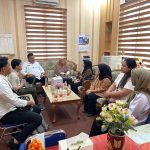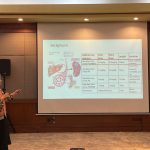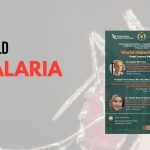Marking World Malaria Day 2025: Guest Lecture Series – Toward Malaria Elimination by 2030
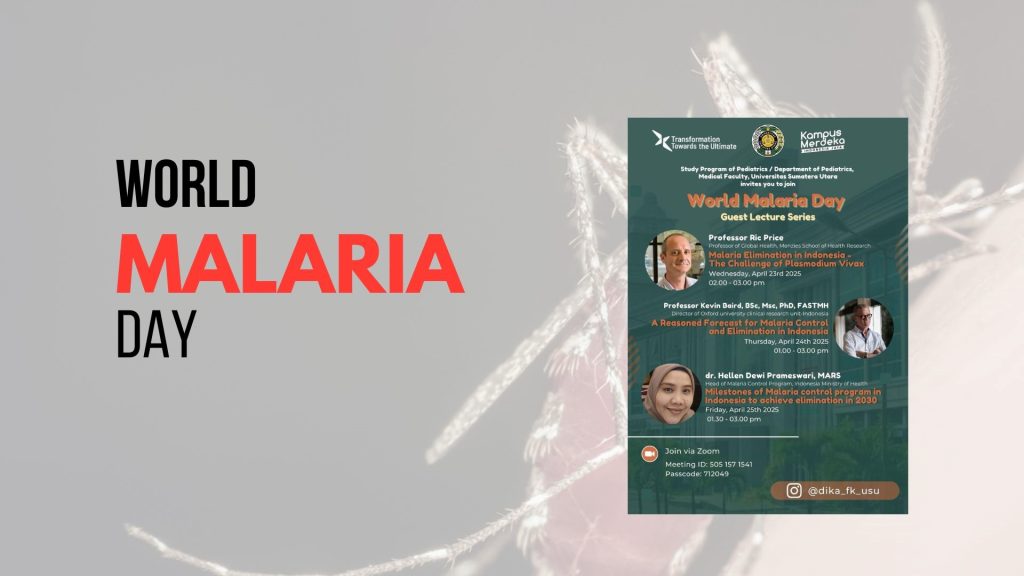
Demonstrating a firm dedication to the advancement of global health, the Study Program of Pediatrics, Department of Pediatrics, Faculty of Medicine, Universitas Sumatera Utara successfully held a three-day virtual guest lecture series entitled “Marking World Malaria Day: Guest Lecture Series – Towards Malaria Elimination 2030.” Taking place from April 23 to April 25, 2025, the event was organized to commemorate World Malaria Day and brought together prominent figures in malaria research and health policy to share valuable insights on Indonesia’s roadmap toward malaria elimination.
Day 1 – April 23, 2025
Session Title: Malaria Elimination in Indonesia – The Challenge of Plasmodium vivax
The series began with a keynote lecture by Professor Ric N. Price, MA, BM, BCh, DPhil, FRCP, Professor of Global Health at the Menzies School of Health Research, Darwin, Northern Territory, Australia, and a prominent expert in malaria research with extensive field experience in the Asia-Pacific region.
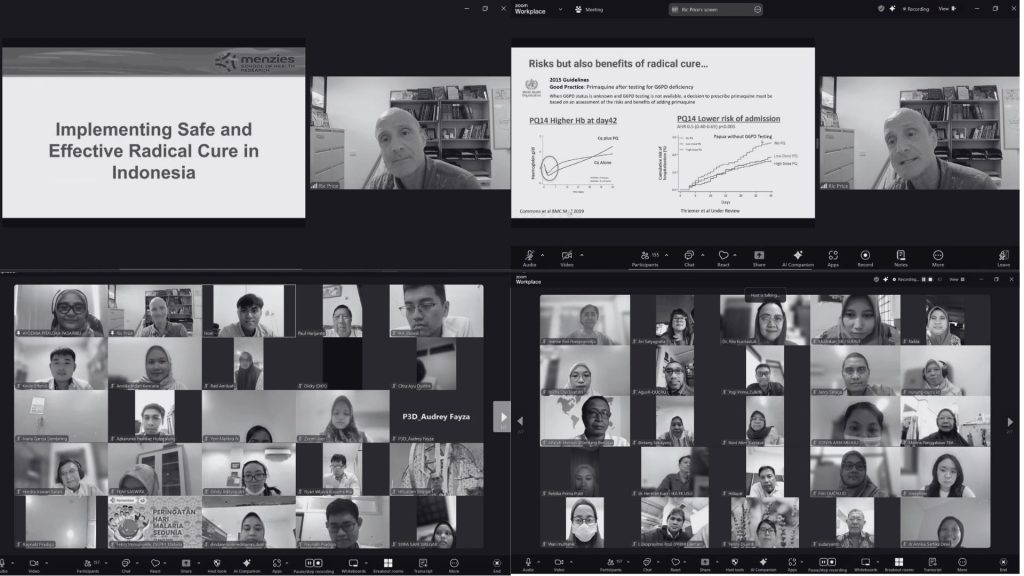
Professor Price’s session provided an in-depth overview of Plasmodium vivax, the most widespread of the malaria parasites in Indonesia and a major barrier to elimination efforts. Unlike P. falciparum, P. vivax has a dormant liver stage that can cause relapses weeks or even months after the initial infection, making it especially difficult to control. He emphasized the importance of developing effective strategies for early detection and radical cure—particularly the wider use of primaquine and tafenoquine treatment regimens—and called for strengthened surveillance systems and better access to quality diagnostics.
Day 2 – April 24, 2025
Session Title: A Reasoned Forecast for Malaria Control and Elimination in Indonesia
The second day featured Professor Kevin S. Baird, BSc, MSc, PhD, FASTMH, a distinguished Director of the Eijkman-Oxford Clinical Research Unit (EOCRU) at the Faculty of Medicine, Universitas Indonesia, Jakarta, Indonesia. With a global reputation in tropical medicine, Professor Baird shared a detailed analysis of Indonesia’s current malaria burden and potential pathways forward.

In his lecture, Professor Baird presented epidemiological data and modeled forecasts that assessed both progress and setbacks in Indonesia’s malaria control. He highlighted challenges such as drug resistance, mosquito behavioral adaptation, and the difficulty of reaching remote and high-transmission areas. Despite these hurdles, he expressed optimism that with sustained political will, investment in research, and community engagement, Indonesia could realistically achieve malaria elimination by 2030.
Day 3 – April 25, 2025
Session Title: Milestones of the Malaria Control Program in Indonesia to Achieve Elimination in 2030
The final session was delivered by Dr. Helen Dewi Prameswari, MARS, who currently serves as the Head of the Malaria Control Program at the Directorate of Communicable Disease Prevention and Control, Ministry of Health of the Republic of Indonesia.
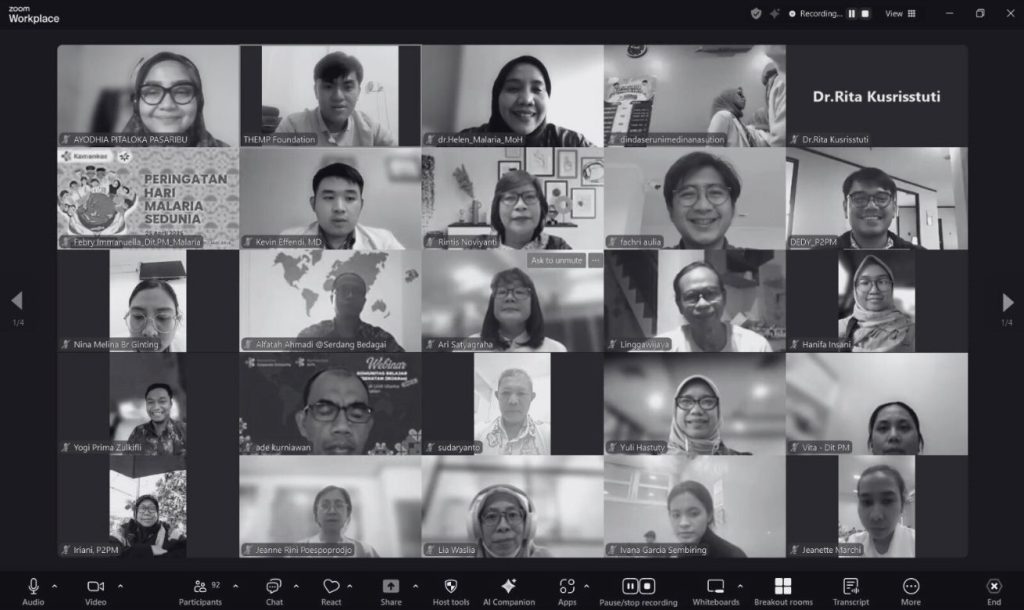
Dr. Prameswari’s presentation offered a policy-level perspective on Indonesia’s national malaria elimination program. She outlined the strategic priorities established by the Ministry of Health, including case detection and treatment protocols, community-level vector control, public health education, and integration of malaria services into primary health care. She also presented key milestones achieved in recent years, such as the certification of malaria-free districts and advancements in digital case reporting through the Sismal system.
The lecture series, conducted via Zoom, drew significant interest from medical students, researchers, health professionals, policy makers, and global health enthusiasts. Participants engaged in active Q&A sessions and gained valuable insights into the scientific, operational, and policy-based components of malaria elimination.
By bringing together voices from global academia, national research institutions, and health policy leaders, this event served not only as a commemoration of World Malaria Day, but also as a platform to reaffirm Indonesia’s commitment to eliminating malaria by 2030.
The Faculty of Medicine, Universitas Sumatera Utara extends its sincere gratitude to all speakers, attendees, and organizers for making this impactful series a success. Continued collaboration, evidence-based action, and innovation will be vital in achieving a malaria-free future.
